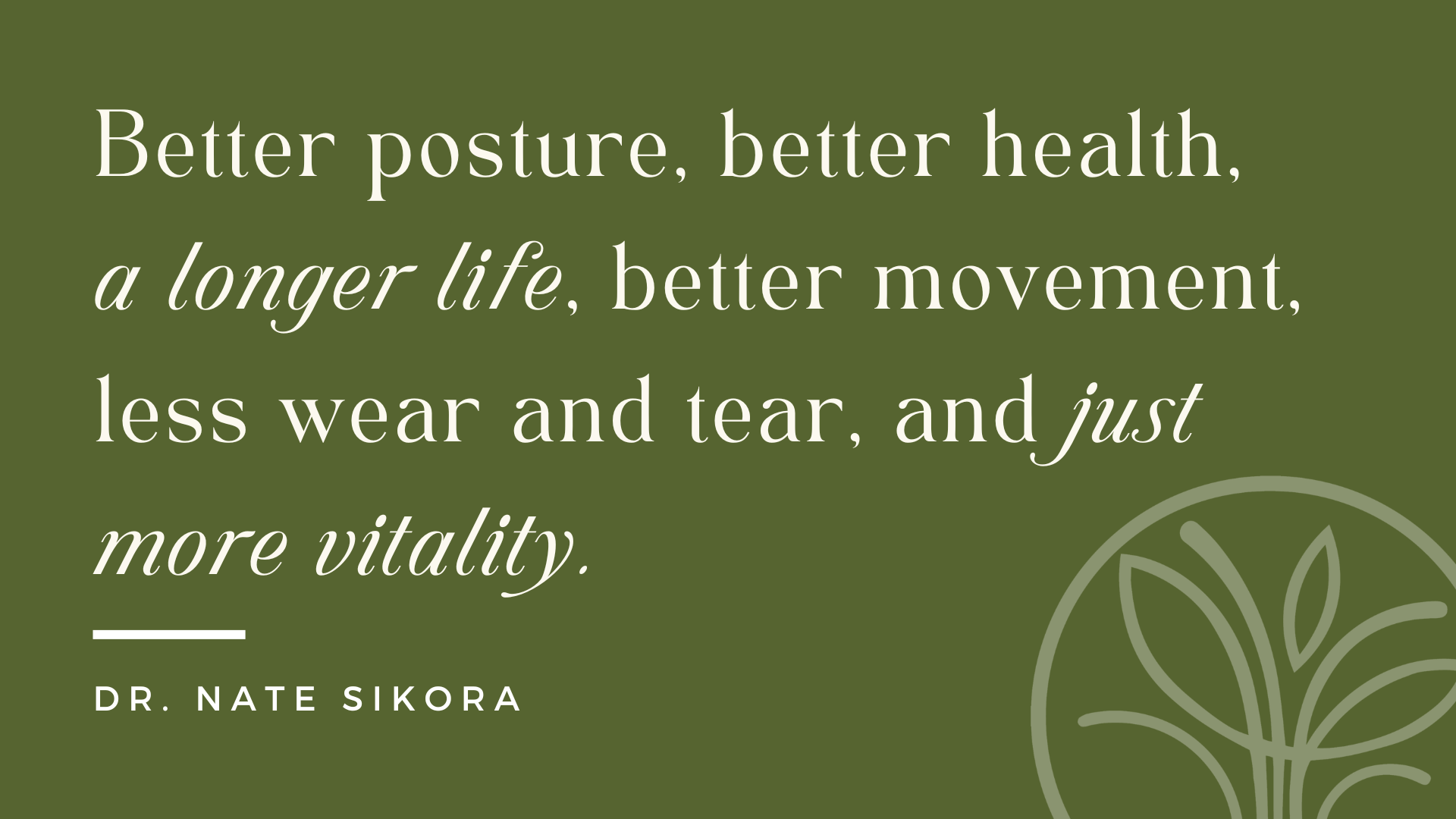The Science of Postural Neurology
How Does Your Posture Affect Your Brain and Body?
Ever notice your mood shift when you stand tall versus when you slouch? It’s not just in your head; it's in your posture!
A little something called postural neurology accounts for that mental shift.
What is Postural Neurology?
Postural neurology is the study of how your brain and body collaborate to maintain posture.
When your brain and body work in harmony, your posture improves, leading to better physical and mental health.
This isn’t a new concept; humans have been studying posture for thousands of years to treat various health issues. But today, we understand more than ever how posture can reveal the health of your brain and body.
Health Implications of Poor Posture
Poor posture does more than just make you look slouched. It can lead to a cascade of health issues.
For those of you present at this workshop, you may remember a poignant story Dr. Nate shared about a long-time patient whose persistent head tilt was a sign of a deeper issue—a brain cyst. Thankfully, the story had a happy ending, but it underscores the importance of paying attention to posture as an indicator of health.
When you slouch, your body releases more cortisol, the stress hormone, making you feel less alert and more down. Conversely, standing tall can boost endorphins and serotonin, lifting your mood and energy levels.
Your posture affects everything from breathing and digestion to hormone production and mental clarity.
Five Simple Tools for Better Posture
You don’t need to spend a fortune to improve your posture. Small, daily changes can lead to significant improvements. Here are some actionable tips:
Use a posture cushion: These are a game-changer. They help hydrate your discs, strengthen your core, and improve your spinal curve. A small investment for a big impact!
Employ ergonomics at your workstation: Ensure your feet are flat, hips level, and your monitor is at eye level. This setup minimizes stress on your body during long work hours.
Consider mindful movement: Engage in activities like walking with your head over your shoulders and arms swinging naturally. This increases postural awareness and strength.
Take posture breaks: Take a break every hour to reset your posture. Simple stretches and deep breaths can make a world of difference.
Incorporate balance and core exercises: Activities like cross-crawl exercises and standing on one foot enhance the brain-body connection and strengthen your core.
Straighten Up for a Longer, Healthier Life
Good posture isn’t just about looking confident; it’s about living a healthier, longer life.
Poor posture can lead to joint and muscle issues, affect organ function, and even increase the risk of heart disease. By making posture a priority, you’re investing in your health and vitality.
If you’re curious as to whether posture is impacting your mood, focus, or overall health, consider chiropractic care as a tool to help you experience the powerful benefits of the brain-body connection.



